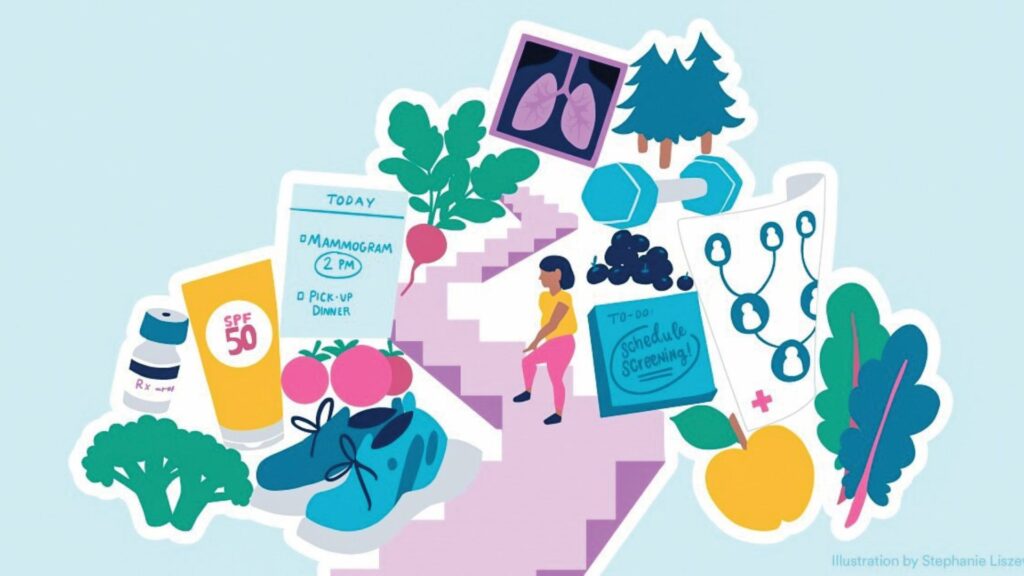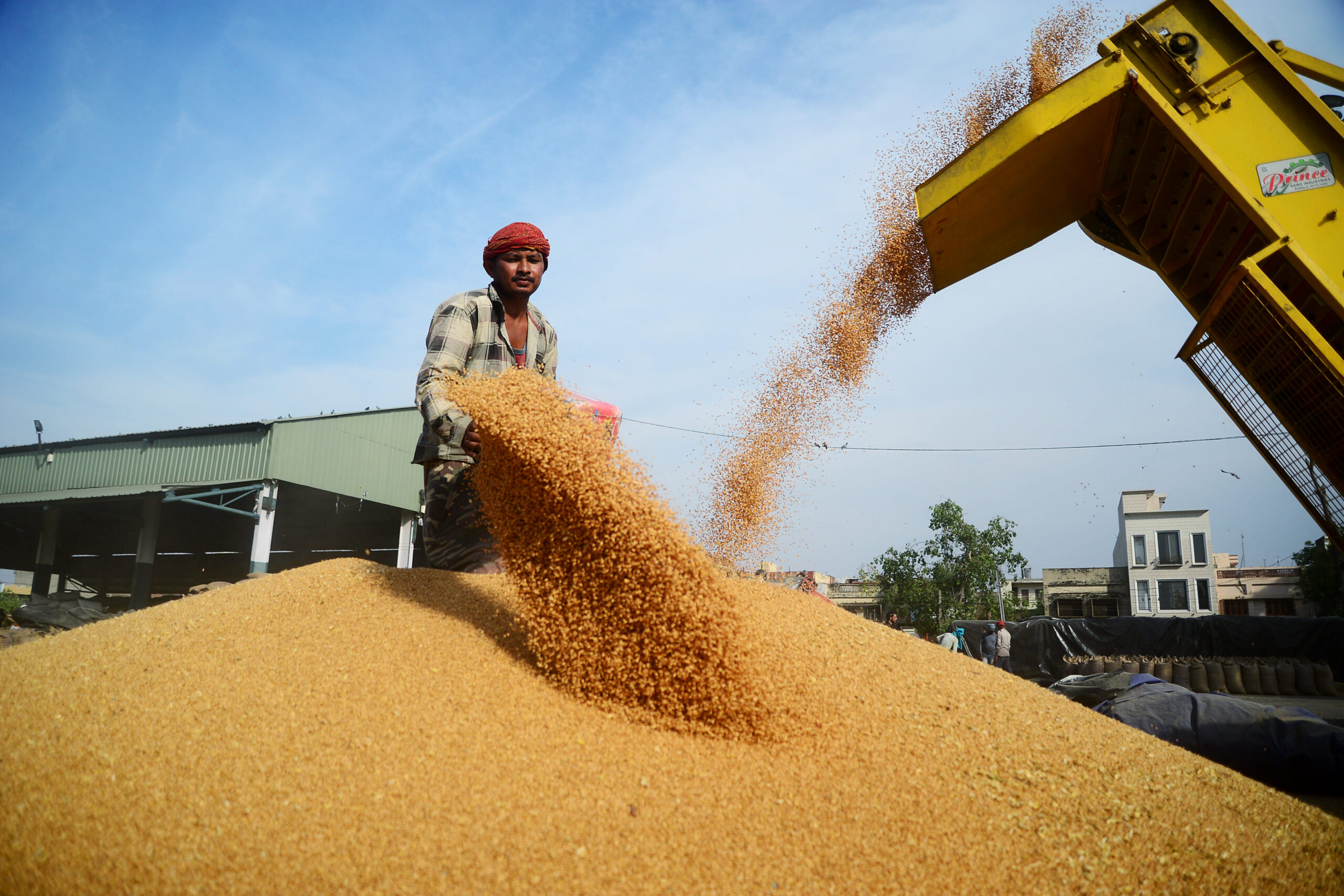National Cancer Awareness Day is a reminder to reflect on the growing burden of cancer and emphasize early detection, prevention, and access to effective treatments. In India, where cancer cases have been on the rise, this day is crucial for encouraging awareness and fostering a proactive approach to combating the disease.
The Current Cancer Situation in India
Cancer remains a significant health issue in India, with cases increasing each year. As of 2024, approximately 1.4 million new cancer cases are diagnosed annually. Cancer is the number 2 killer in India! According to recent data from the National Cancer Registry, cancers of the breast, lung, cervix, mouth, and foodpipe/stomach are the most common in India. These five types account for over half of the country’s cancer burden. Here’s a closer look:
Breast Cancer: The most common cancer among Indian women, accounting for about 25-30% of all female cancers. One in every 8 to 10 women in India is anticipated to develop breast cancer in their lifetime!
Lung Cancer: Primarily affecting men, this type is associated with high smoking rates and environmental pollutants. One of the Preventable cancers!
Cervical Cancer: Due to suboptimal vaccination and screening efforts, this remains the second most common cancer among women in India.
Oral Cancer: India is the global capital of Head & Neck cancers and has one of the highest rates globally due to widespread tobacco chewing habits. Again, a very preventable type of cancer.
Foodpipe (esophagus) & Stomach Cancer: Linked to smoking, tobacco chewing, dietary habits and Helicobacter pylori (a type of bacteria) infections, stomach cancer depicte a variable incidence and is very prevalent in some regions, like South and North East India.
In terms of mortality, cancer claimed over 850,000 lives in India in 2023. In the next decade, it is expected to overtake cardiovascular disease as the number one killer!Late-stage diagnosis remains a primary reason for high mortality rates, as nearly 50 to 70% of cancer cases are identified in advanced stages (stage III and IV).
Regional Disparities in Cancer Incidence
India’s cancer statistics reveal significant geographic and socioeconomic disparities. Urban areas tend to have higher rates of breast and lung cancers, while rural areas report higher cases of cervical and foodpipe/stomach cancers. Regions like the northeastern states show high incidences of esophageal/stomach cancers, likely due to dietary and lifestyle factors unique to those areas.

Efforts to Combat Cancer in India
To reduce the cancer burden, the Indian government and various health organizations have implemented several initiatives:
1. National Program for Prevention and Control of Cancer, Diabetes, Cardiovascular Diseases, and Stroke (NPCDCS): Launched to promote awareness, provide screening, and facilitate early diagnosis and treatment.
2. Ayushman Bharat: Under this scheme, the government has set up health and wellness centers across the country for cancer screening services, especially for breast, cervical, and oral cancers.
3. Awareness Campaigns: National Cancer Awareness Day itself is an example of a large-scale awareness initiative. By spreading knowledge about the importance of screenings, people are more likely to seek medical attention sooner.
4. Vaccination Programs: The HPV vaccine has been introduced to prevent cervical cancer, and is being increasingly promoted in schools and rural areas. An effective and safe generic cervical cancer vaccine is also available. Cervical cancer vaccination is soon to be incorporated in the national vaccination program conducted by the GOI.
The Role of Early Detection and Awareness
Screening for cancers like cervical, breast, colon and oral cancers can significantly reduce mortality rates, as early-stage cancers are often treatable with better outcomes and much less expenses. On National Cancer Awareness Day, health centers across India offer free cancer screenings and educate the public about the warning signs and the importance of a healthy lifestyle.
Reducing Cancer Risk: Lifestyle Changes and Prevention
Apart from awareness and treatment, prevention plays a crucial role in reducing the cancer burden. Cancer today, is considered a ‘lifestyle disease! Lifestyle factors like tobacco use, poor diet, alcohol consumption, and physical inactivity are responsible for a large percentage of cancers in India. If a cancer preventing life style is adopted in young adulthood, almost 50% of cancers can be prevented! Addressing these factors can help reduce risk:
Tobacco Control: With nearly 28% of Indian adults using tobacco, India has one of the highest oral cancer rates globally. Continued efforts in tobacco cessation programs are essential.
Diet and Exercise: A balanced diet, rich in fibre and beta carotene (found in green, colored vegetables and fruits) and regular exercise can lower the risk of many cancers.
Vaccination: HPV vaccination for cervical cancer and hepatitis B vaccination to prevent liver cancer are essential preventive steps.
Looking Ahead: Reducing the Cancer Burden in India
India faces the challenge of an aging population, rising lifestyle-related cancers, and limited healthcare infrastructure in many regions. However, with sustained efforts in awareness, early detection, prevention, and equitable treatment access, India can make strides toward controlling cancer.
Lifestyle modifications play a crucial role in preventing cancer, as many cancers are linked to lifestyle factors like diet, physical activity, and tobacco use. Here are some important lifestyle changes that can help reduce the risk of cancer:
Adopt a Healthy Diet
Eat a Plant-Based Diet: Focus on consuming a variety of fruits, vegetables, whole grains, and legumes. These foods are rich in antioxidants, fiber, vitamins, and minerals that help protect against cancer.
Limit Red and Processed Meats: High consumption of red meat (beef, lamb, pork) and processed meats (sausages, bacon, etc.) has been linked to an increased risk of colorectal and other cancers. Opt for lean proteins like chicken, fish, or plant-based alternatives.
Choose Healthy Fats: Instead of saturated and trans fats (found in fried foods, packaged snacks), use healthier fats like those from olive oil, avocados, nuts, and seeds.
Reduce Sugar Intake: Excess sugar, especially refined sugars found in processed foods, can contribute to obesity and increase the risk of cancers like breast, liver, and colorectal.
Drink Plenty of Water: Hydration supports overall health, and staying well-hydrated can help maintain a healthy weight and prevent other health issues that may increase cancer risk.
Maintain a Healthy Weight
Watch Your BMI: Being overweight or obese is a known risk factor for various cancers, including breast (postmenopausal), colorectal, kidney, and endometrial cancer. Maintaining a healthy weight through balanced nutrition and regular physical activity can reduce the risk.
Limit Alcohol Consumption: Drinking alcohol increases the risk of several types of cancer, including breast, liver, esophageal, and colorectal cancer. Limit alcohol intake to no more than one drink per day for women and two drinks per day for men, or avoid it entirely.
Be Physically Active
Exercise Regularly: Regular physical activity helps maintain a healthy weight, boosts the immune system, and reduces the risk of cancers like colon, breast, and endometrial cancer. Aim for at least 30 minutes of moderate-intensity activity on most days of the week.
Incorporate Strength Training: In addition to aerobic activity, include strength training exercises at least two days a week to build muscle mass and support metabolism.
Quit Smoking and Avoid Tobacco
Stop Smoking: Smoking is the leading cause of preventable cancer and is linked to cancers of the lungs, mouth, throat, esophagus, bladder, kidney, and more. Quitting smoking is one of the best ways to reduce your cancer risk.
Avoid Secondhand Smoke: Exposure to secondhand smoke also increases cancer risk, so it’s important to avoid environments where smoking is prevalent.
Protect Your Skin from the Sun
Use Sunscreen: Ultraviolet (UV) radiation from the sun is a leading cause of skin cancer, including melanoma. Protect your skin by using broad-spectrum sunscreen with SPF 30 or higher, wearing protective clothing, and avoiding excessive sun exposure, especially during peak hours (10 AM to 4 PM).
Get Regular Skin Checks: Keep an eye on moles and skin changes, and seek medical advice if you notice anything unusual (e.g., new growths, changes in existing moles).
Get Vaccinated
HPV Vaccine: The human papillomavirus (HPV) vaccine can help prevent cancers linked to HPV, including cervical, anal, throat, and penile cancers. Vaccination is recommended for both boys and girls in early adolescence.
Hepatitis B Vaccine: Hepatitis B is linked to an increased risk of liver cancer. Vaccination can help prevent hepatitis B infection.
Limit Exposure to Environmental Toxins
Avoid Exposure to Carcinogens: Limit your exposure to known carcinogens like asbestos, radon, certain chemicals in household cleaners, pesticides, and industrial pollutants. When possible, choose natural or eco-friendly alternatives.
Be Cautious with Radiation: Limit unnecessary exposure to radiation from medical procedures (such as X-rays or CT scans) and household sources (like cell phones or microwaves).
Regular Screenings and Health Check-ups
Early Detection Saves Lives: Regular screening tests can detect cancer early, even before symptoms appear. Depending on age and risk factors, screenings for breast cancer (mammograms), cervical cancer (Pap smears), colorectal cancer (colonoscopy), and prostate cancer (PSA test) are highly recommended.
Talk to Your Doctor: If you have a family history of cancer or other risk factors, your doctor can guide you on appropriate screenings and preventive measures.
Stress Management and Mental Well-being
Manage Stress: Chronic stress can weaken the immune system and may contribute to unhealthy behaviors (such as overeating or smoking), which can increase cancer risk. Practice relaxation techniques such as yoga, meditation, deep breathing, or mindfulness.
Maintain Healthy Relationships: Having a strong social support network is associated with better health outcomes, including lower stress levels and a stronger immune system.
Sleep Well
Prioritize Sleep: Getting adequate sleep is essential for overall health. Poor sleep patterns and sleep deprivation have been linked to an increased risk of obesity, diabetes, and potentially some cancers. Aim for 7-8 hours of quality sleep each night.
By making these lifestyle modifications, individuals can significantly reduce their risk of cancer and promote overall health. It’s important to remember that while lifestyle changes can lower cancer risk, no single action guarantees prevention, but collectively, these steps can make a major difference.







